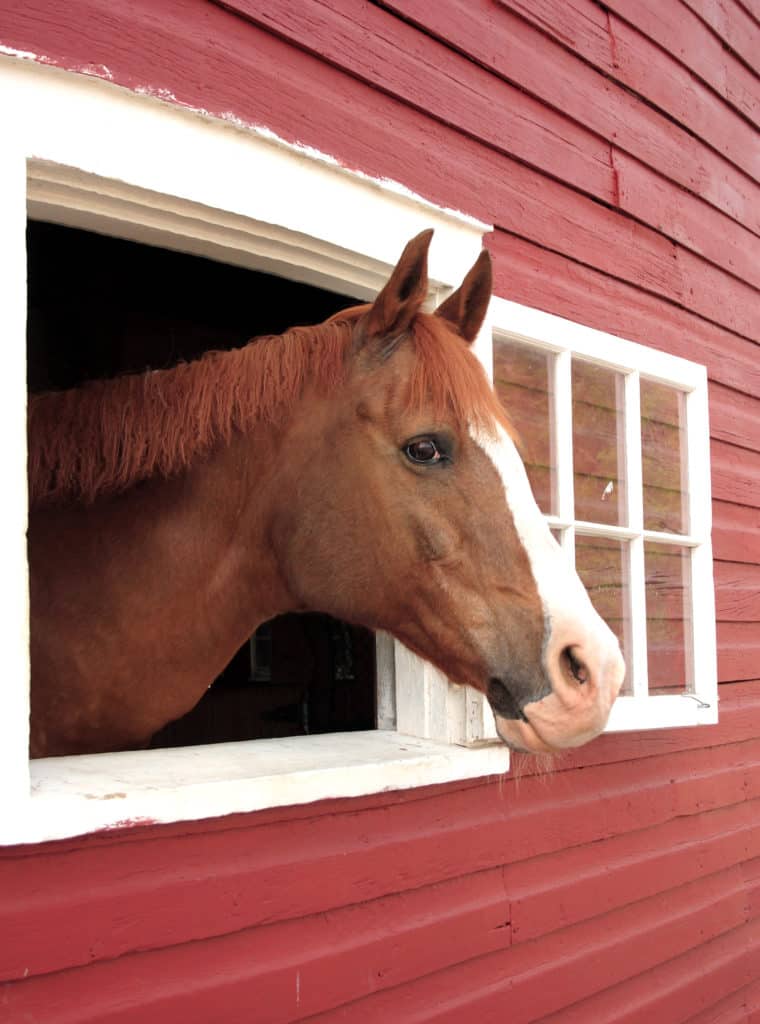
Heated Barns and Horses: Special Considerations Needed
Heating horse barns can cause a host of respiratory and other problems if done incorrectly.

Heating horse barns can cause a host of respiratory and other problems if done incorrectly.
Equine Guelph (University of Guelph) recently introduced their new Equine Biosecurity Risk Calculator.

Researchers found the frequency of intestinal contractions was lower in stabled horses than pastured horses.

Choosing the right mats and/or bedding for your barn will help keep horses comfortable and stalls clean.
Tune in on September 1 for an Ask the Vet LIVE online Q&A about Avoiding Respiratory Problems in the Barn.

Mapping airborne particles in horse barns could help minimize the risk and/or prevalence of airway disease.
Researchers have made strides in understanding airway diseases and what helps (or does not help) control them.
More than 540 readers of TheHorse.com responded to a poll asking, “How do you ‘spring clean’ your farm?”

Learn how to clean and disinfect a dirty stall between horses, after a sick horse occupies it, or before placing a mare in the stall to foal (with Dr. Roberta Dwyer of the University of Kentucky’s Gluck Equine Research Center).

What hidden dangers lurk in your barn? Learn how to maximize air quality and improve safety in the stable.
As our understanding of horse health and behavior has improved, barns have changed–a lot. No longer are they just places to house horses. Today’s owners now approach barns and other farm structures with horse/human health, environmental impact…
Researchers have shown that significant amounts of mucus in a racehorse’s airway can negatively affect his performance, and they’ve theorized that dust in the horse’s environment contributes to that mucus. Therefore, the logical nex

Take a closer look at your barn and property and ensure it’s safe for horses and handlers.
Horse transport and housing has an effect on the animals’ stress levels, according to Shannon Garey, a PhD candidate under the direction of Theodore Friend, PhD, PAS, Dipl. ACAABS, of Texas A&M. Garey presented results of an ongoing study on
Horses are better able to maintain fitness when turned out on large pasture, according to Patty Graham-Thiers, PhD, of Virginia Intermont College, Bristol, Va. She presented results of her recent study at the 2009 Equine Science Society
In addition to the risks viruses and bacteria pose to the horse, environmental exposure to particulates dispersed from feed, bedding, footing materials, and other sources (such as diesel exhaust) all can lead to IAD. Even small increases in aerodynam
Stay on top of the most recent Horse Health news with
"*" indicates required fields